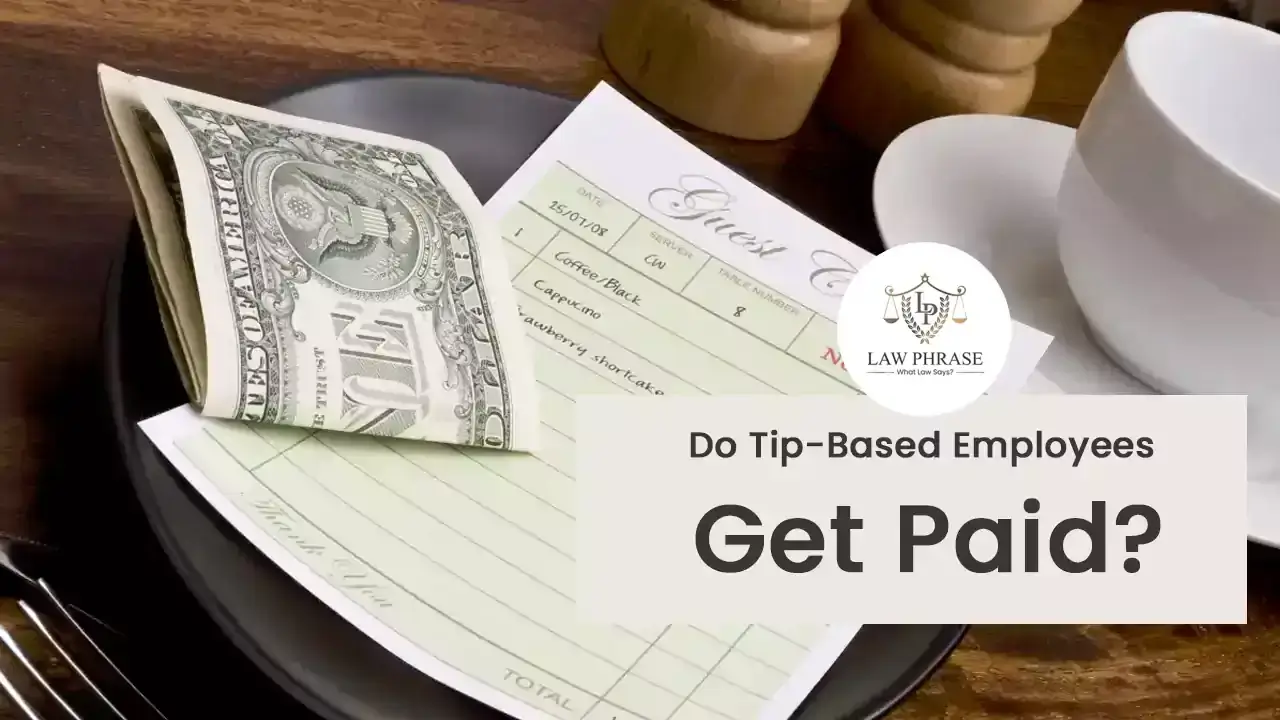Do Tip-Based Employees Get Paid?
 Law Phrase 25-01-2024
Law Phrase 25-01-2024

Table Of Contents:
A variety of employees in Florida earn tips, including doormen, waiters, valets, hotel housekeepers, tour guides, and drivers. Whether or not they receive a portion of their pay from tips, however, depends on state law and regulations.
The Fair Labor Standards Act (FLSA) allows employers to take a so-called "tip credit" toward their obligation to pay tipped employees a direct cash wage no lower than $6.98 per hour in addition to the minimum wage.
What is a Tipped Employee?
A tipped employee is an employee who customarily and regularly receives tips in exchange for their work. tipped employees in Miami, FL typically work in restaurants, bars, and clubs.
In Florida, tipped employees are generally entitled to minimum wage and overtime pay. They may also earn a tip credit, which allows employers to pay a lower direct wage as long as they make enough in tips to cover the difference.
However, it is important to note that some service charges are not considered tips. For example, restaurants often tack a mandatory service charge onto bills for large parties or special events, and that amount is not considered a tip.
Tipped Employees in Florida
Tip-based employees are entitled to pay that is a percentage of their tips in addition to the minimum wage. However, many employers in Florida fail to follow the law and pay their tipped employees less than minimum wage.
In Florida, individuals earning over $30 per month in tips are designated as "tipped employees" under the state's minimum wage and overtime regulations. Alongside the minimum wage requirement, employers are obligated to provide tipped employees with a direct cash wage of at least $6.79/hour. If you encounter issues related to minimum wage or overtime, consulting with an overtime lawyer can help ensure your rights are protected.
Employers are permitted to take a tip credit against their minimum wage obligations under the federal Fair Labor Standards Act. However, in Florida, employers may not take a tip credit that exceeds $3.02/hour under state law. This credit must be credited against the employee’s direct cash wage and the employer must ensure that tipped employees receive at least the minimum wage when combining this wage with the tips received.
Tips are Not Considered Tips in Florida
Generally, tips are discretionary (optional or extra) payments that customers leave with their service providers. They can be in the form of cash, gift cards or electronic settlement.
There are several important things to remember about tips in Florida. For one, employers are not allowed to count any tip amount that they do not receive from their employees as part of the employee’s base pay.
Second, if an employer does decide to use a tip credit in its hourly rate calculation, the employee should not expect the credit to exceed $3.02 an hour, the minimum wage in Florida.
While there are many different laws governing tipping in Florida, some of the most important rules include that automatic gratuities are not considered tips and mandatory service charges do not pass muster as a tip.
Tipped Employees in Miami
Many Miami FL workers, such as servers, waiters, waitresses, captains, hosts, hostesses, bartenders, bussers, and other employees in restaurants and clubs regularly earn tips from customers. They are considered tipped employees under federal law.
Florida’s minimum wage increases have benefited these employees as well. These increases have raised the state’s minimum wage by $1 per hour each year until it reaches $15 per hour on September 30, 2026.
When an employer violates the laws by failing to pay tipped employees a full, legal minimum wage, that company can be held liable for back wages and unpaid overtime wages, liquidated damages, and attorney fees. If you have been denied pay or cheated out of tips, talk to a lawyer from FairLaw Firm about your rights.
Employers sometimes engage in tip pooling practices, which can lead to tipped employees being cheated out of their tips. If you think you are a tipped employee who was wrongfully cheated out of your tips, contact a Miami FL overtime and unpaid wages lawyer from FairLaw Firm today for a free consultation.

